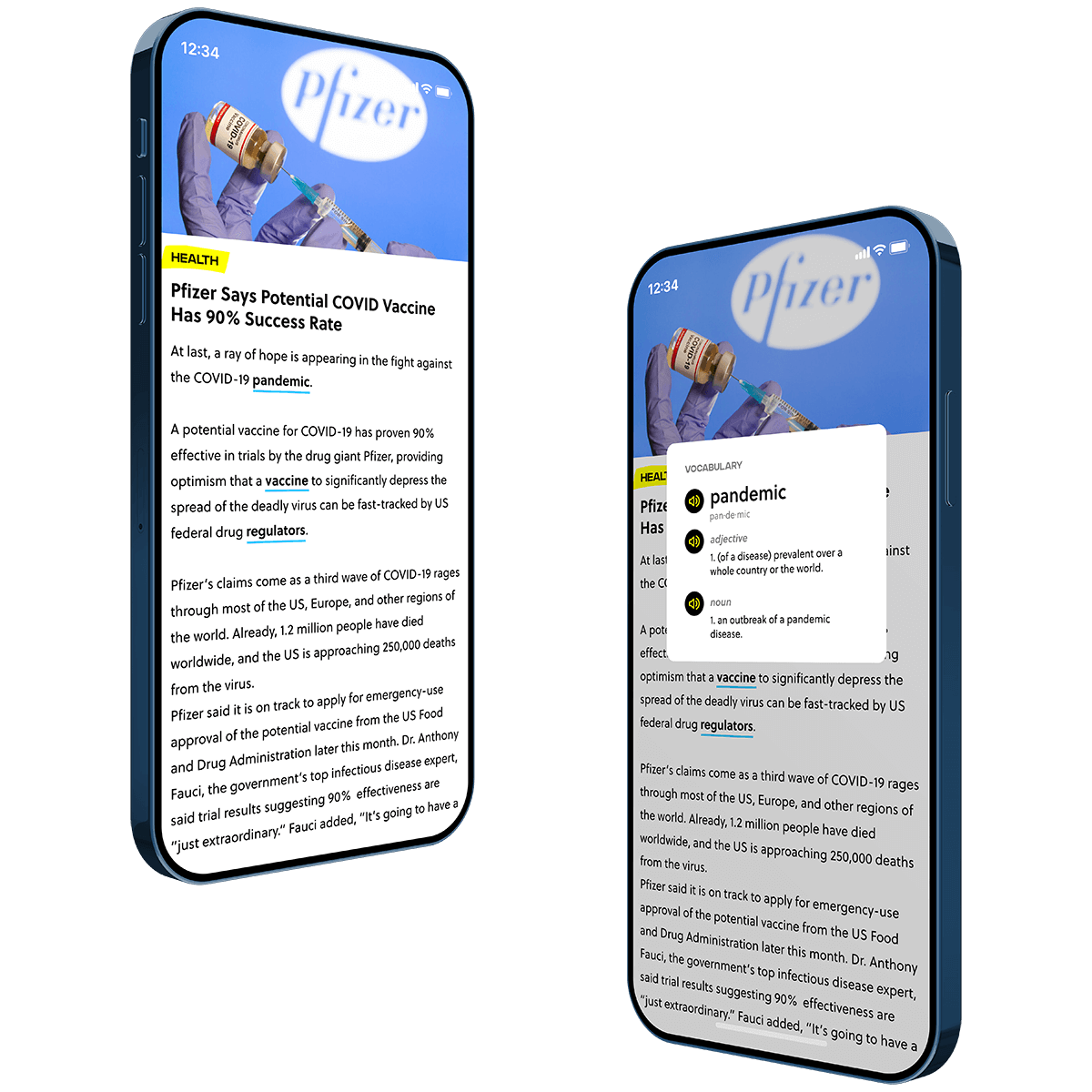Parents are using The Juice to supplement virtual learning during the pandemic
This year is posing an incredible challenge for teachers, students, and parents. With most schools having moved to some form of remote learning, education has changed dramatically. And while teachers have worked harder than ever to make the best of it, gaps in education are bound to exist.
We have heard from many concerned parents who are worried their students are falling behind or will lack certain skills due to the learning changes this year. This is certainly a valid concern!
Are there resources out there to help parents fill in these gaps? Yes! And The Juice is one of them. The Juice’s curriculum is created for both educators and parents to use both in the classroom and at home.
Why choose us? The Juice offers news-based articles right to your inbox each morning along with standards-based questions to lead you and your student through meaningful discussions. Our parents love having this easy access to real-world literature that they can add to their student’s learning everyday.
We talked with Stephanie, a parent of a fourth-grader who is attending school virtually. We learned what Stephanie likes most about using The Juice, and how it has helped her supplement her daughter’s virtual education.
Let’s Hear From One of Our Parents
How Stephanie Uses The Juice to Supplement Virtual Learning
Stephanie discusses her frustration with some of the learning gaps when it comes to school curricula and virtual learning. She believes, “what they’re missing from school is bringing literature or something that they want to read and reading it out loud.”
Stephanie has started a small, virtual group discussion every Wednesday with her daughter and three other girls. The group uses this time to practice reading and research skills and now with The Juice, Stephanie also introduces the girls to current events and world-relevant topics.
“They like it,” she states, “We read things that the girls find interesting and The Juice has been one of the things that I’ve brought to them.”
Stephanie also uses The Juice’s vocabulary practice to help her daughter and the other girls develop strong language skills. She says, “I try to help develop their language skills. Learning five to ten new words a week that they didn’t know and then adding synonyms and antonyms. So I like how [the vocabulary practice] is organized, that’s a big plus.”

How The Juice Helps Stephanie’s Group Connect to the World Around Them
It can be tough to get children excited or interested in what’s going on around the world. The Juice is available in four different reading levels, so every student can be included in the discussion. Articles are written so students can understand the content and connect it to their own lives.
Stephanie has found success in getting her group of girls more involved in these real-world topics. She comments, “They get really into figuring out who said what, and they’re actually more into it than I thought they would be. So it’s been kind of fascinating.”
Connecting school literature to current events helps students become more knowledgeable about the world they live in. They start to understand what they are seeing on the news and are able to form their own educated opinions.
Stephanie adds, “The content continues to be non-biased and continues to be fact-driven. I think that’s so important, especially with youth. I think with kids, depending on what kind of home they’re coming from, and how their parents choose to educate them, it’s important to let them kind of guide themselves and make their own opinion.”
How The Juice Opens the Door to Meaningful Discussions
Having meaningful literature not only builds reading skills but also allows parents to practice and engage in purposeful discussions with their kids.
Stephanie builds off the information presented in our articles by asking leading questions to start conversations with her group. She explains how they start with an article, find the source, and then discuss questions such as, “Why do you think they said that? What do you think it means? What if it was a different narrator? How would it have been written differently?”
They discuss what they like about the articles, what they don’t like, and how it could have been written or explained differently. This kind of discussion encourages students to think deeper and builds strong critical thinking skills.
Using The Juice to Teach Research Skills
Stephanie also discusses how the articles from The Juice are more purposeful than finding articles through Google. She talks about how these articles are “more meaningful than if they just googled something and saw what articles came up.”
One of Stephanie’s priorities is teaching her daughter how to find relevant sources. She discloses, “The thing with them learning from home and my frustration with any teacher I’ve had is they’ll say, well, Google it. And that drives me nuts because that’s fine as a starting point, but I also want them to know who told you that? Or where did you find it?”
The Juice allows Stephanie to show her group what a credible source looks like. They can find out where the information came from and go to that source to find out more or to get ideas about other topics to discuss.


